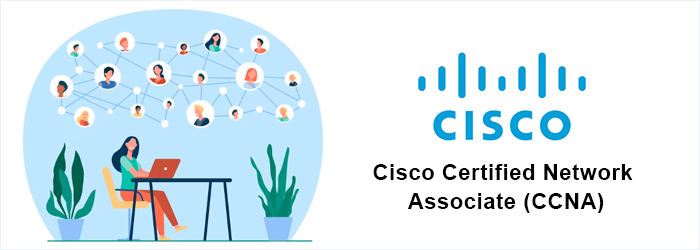

CCNA stands for Cisco Certified Network Associate. It is a widely recognized IT
certification offered by Cisco Systems, one of the world's leading networking technology
companies. CCNA certification is designed to validate and demonstrate the knowledge and
skills required to work with Cisco networking and IT technologies.
With our CCNA Certification Course, you can safeguard your career in the IT sector. With
Cisco's CCNA Certification, which is widely recognized, you are recognized as a top-tier
networking professional, prepared to take on tough responsibilities with confidence and
competence. Our thorough courses are meant to provide you a solid foundation in subjects
like Routing & Switching or Security. So, with the knowledge and assurance gained via
our CCNA Training, take the first step towards a position of distinction.
Individuals from various backgrounds and roles in the IT and networking field can benefit from attending CCNA (Cisco Certified Network Associate) certification training: